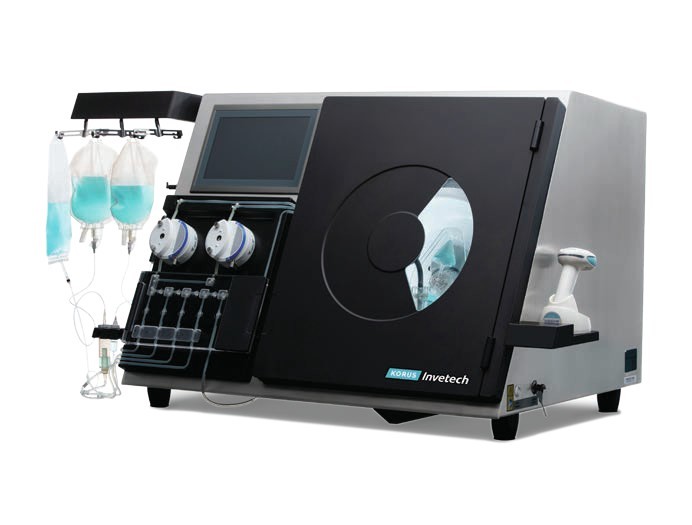KORUS
Cleaner cell populations through elutriation
Produced by Invetech
Korus is a closed system for autologous cell therapies that features elutriation and cell wash using gentle counterflow centrifugation. The system delivers purified cell populations for downstream processing development and commercial manufacturing, which Invetech says results in better overall process performance through higher recovery and purity of target cells. According to the company, there is supporting data demonstrating improved manufacturing performance compared to samples prepared by standard washing.
The double rotor centrifuge means that Korus can produce a full leukopak in one run, enable developers to accelerate clinical development. The input volume range of 25 mL to 5L and efficient run times also enable developers of autologous therapies to use the system from process development through to commercial manufacturing. Korus elutes lymphocytes to high purity levels, resulting in downstream performance improvements, such as greater Dynabead cell selection recovery and fold expansion (compared with standard washing protocols). And that reduces the impact of starting material variability, contributes to higher manufacturing yield, and reduces the risk of batch failure – all contributing to potential reduction in the cost of goods for future therapies.
